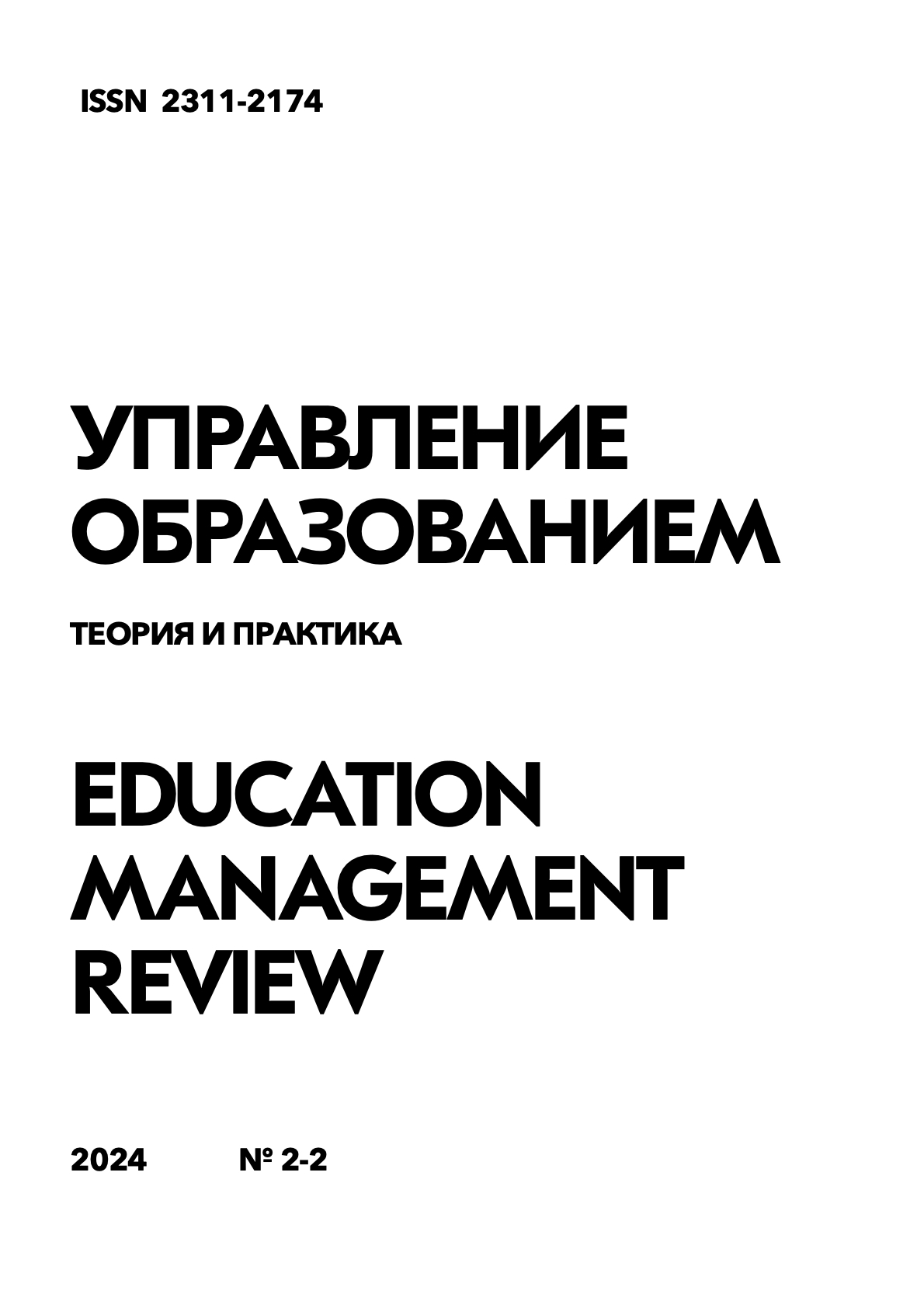Innovative approaches in the didactics of higher education: rethinking traditional teaching methods in the digital age in Russia
DOI:
https://doi.org/10.25726/l1732-7442-8414-vKeywords:
innovative approaches, didactics of higher education, digital technologies, gamification, micro-education, adaptive learning, competencies, digital economyAbstract
In the era of rapid development of digital technologies and their active introduction into various spheres of human activity, including education, rethinking traditional methods of teaching in higher education is becoming particularly relevant. This study is aimed at analyzing innovative approaches in the didactics of higher education in Russia that contribute to improving the effectiveness of the educational process and the formation of students' competencies necessary for successful professional activity in the context of digitalization. To achieve this goal, a comprehensive analysis of the scientific literature devoted to the problems of modernization of higher education in Russia was carried out, as well as the practical experience of introducing innovative teaching methods in leading Russian universities was studied. In particular, data on the use of methods such as gamification (the use of game elements in non-game situations), micro-learning (splitting educational material into small, easily digestible blocks), adaptive learning (personalization of the educational process taking into account individual characteristics and needs of students), etc. were analyzed. In addition, a survey was conducted of 120 teachers from 15 Russian universities in order to identify their attitude to the introduction of innovative teaching methods and evaluate the effectiveness of these methods. The conducted research has shown that the introduction of innovative approaches in the didactics of higher education in Russia contributes to increasing the motivation and involvement of students in the educational process, developing their critical thinking, creativity and skills for solving non-standard tasks. Thus, the use of gamification in teaching has allowed to increase the average student achievement score by 15%, and the use of micro–education has reduced the time spent on studying educational material by 20%. At the same time, 78% of the surveyed teachers noted that innovative teaching methods contribute to the formation of students' competencies necessary for successful professional activity in the digital economy.
References
Абрамов Р.Н. Университетские преподаватели и цифровизация образования: накануне дистанционного форс-мажора // Университетское управление: практика и анализ. 2020. Т. 24. № 2. С. 59- 74.
Асмолов А.Г., Лукша П.О., Рабинович П.Д. Образование для сложного общества: доклад Global Education Futures. М.: Российский учебник, 2018. 213 с.
Гарашкина H.B. Дидактическое проектирование подготовки специалистов социальной работы в вузе: автореф. дис. ... д. пед. н. Тамбов, 2004. 42 с.
Гусева А.Х. О тенденциях дидактики дисциплин профессионального цикла в режиме онлайн: формирование дистанционного фонда оценочных средств: мат. V Междунар. науч.-прак. конф. «Магия ИННО: Лингвистика и лингводидактика в меняющейся системе координат». М.: МГИМО-Университет, 2021. С. 457-463.
Дружинина А.А., Гарашкина Н.В. Интеграция синхронного и асинхронного форматов обучения студента как направление цифровизации высшего образования // Гуманизация образования. 2020. № 4. С. 15-25.
Еременко Т.В. Конструирование академического этоса студентов в информационно-образовательной среде современного вуза: педагогическая модель // Педагогика. 2021. № 2.
Кондаков А.М., Сергеев И.С. Методология проектирования общего образования в контексте цифровой трансформации // Педагогика. 2021. № 1. С. 5-24.
Подуфалов Н.Д. К вопросу развития дидактики в условиях цифровой трансформации общества // Педагогика. 2021. № 2. С. 5-23.
Чошалов МЛ. Инженерия дистанционного обучения. М.: Лаборатория знаний, 2021. 304 с.
Langton L.M., de Uriarte M.L, Grinfeder K., Vicente P.N. New technology, new rules for journalism and a new world of engagement // Proceedings WJEC. 2019. pp. 491-503.
15. Rinsdorf L, Boers R. The need to reflection: data journalism as an aspect of disrupted practice in digital journalism and in journalism education // Proceedings of the round table conference of the International Association for Statistical Education (IASE). Berlin, 2016.
Ritzer G., Dean P., Jurgenson N. The coming of age of the prosumer // American Behavioral Scientist. 2012. Vol. 56. № 4. рр. 379-398.




